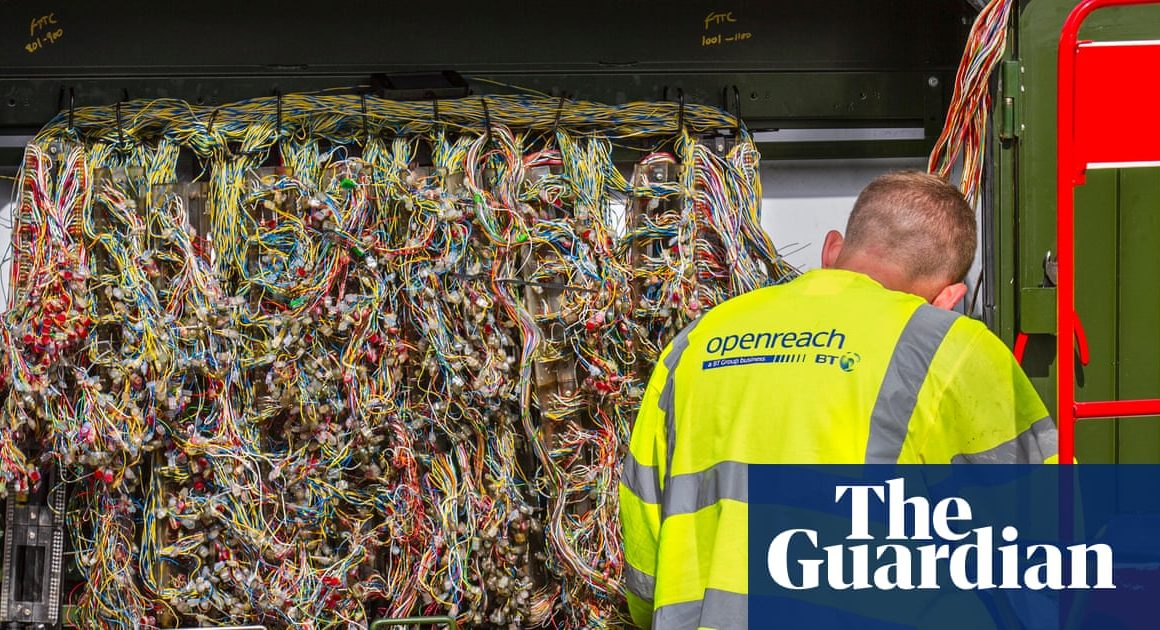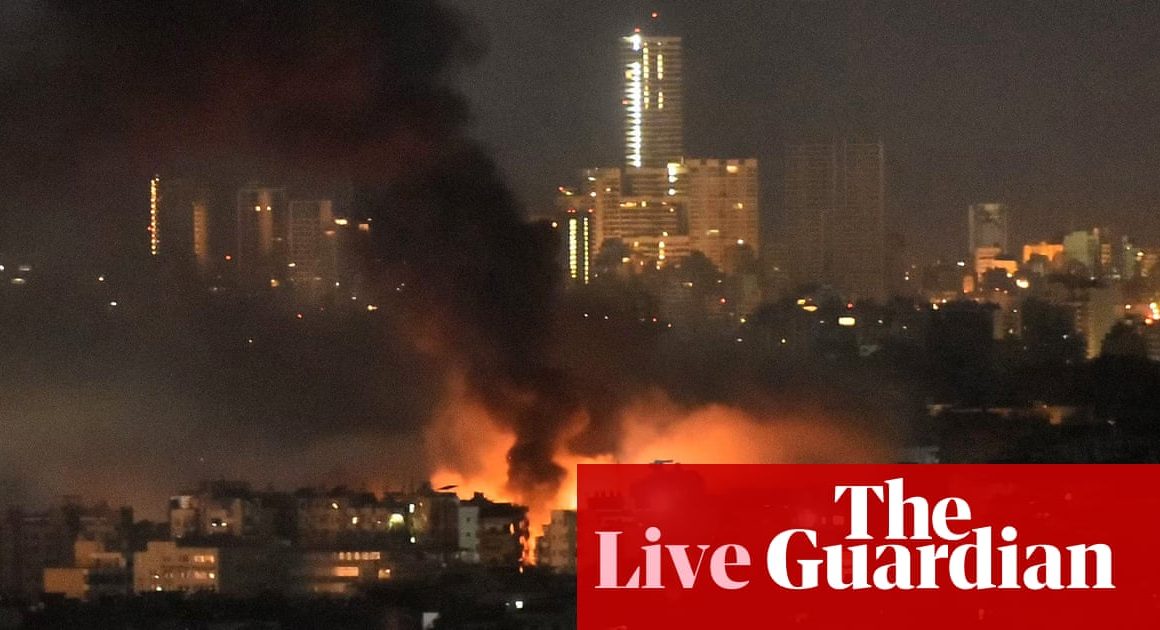Israel accused of rare central Beirut strike
A Palestinian militant group said three of its leaders were killed in an Israeli attack on central Beirut early on Monday, in what would be the first time Israel’s military had struck the centre of Lebanon’s capital city since 2006.
The Popular Front for the Liberation of Palestine (PFLP), a militant group taking part in the fight against Israel, said three senior figures were killed in the Beirut attack, with initial footage from the scene showing two storeys of an apartment building completely blown out, and onlookers running towards the building.

Two bodies could be seen lying on the street atop a car outside the building, seemingly ejected by the force of the blast. The sound of the explosion was heard around the city.
There was no immediate comment from Israel’s military.
The Beirut strike, carried out using a drone, according to one source quoted by Agence France-Presse, hit near the Kola intersection, a popular reference point in the city, where taxis and buses gather to pick up passengers.
Key events

Peter Beaumont
Here is the latest round-up of news from the Middle East crisis from my colleague Peter Beaumont:
Israel’s rapidly expanding war on multiple fronts saw it strike central Beirut for the first time since 2006 early on Monday, after heavy Israeli air strikes involving dozens of aircraft bombed Yemen hours earlier in a long range raid.
The latest strike came as the UN reported some 100,000 people had fled Lebanon for Syria since the latest escalation in the war and as CNN quoted an unnamed figure in the Biden administration saying that the US has changed it military posture in the Middle East amid concerns Iran might attack Israel in response for Israel’s assassination of Hezbollah’s ling time leader Sayyed Hassan Nasrallah on Friday.
The Beirut strike targeted three senior figures in the Popular Front for the Liberation of Palestine (PFLP), a group associated with a series of high profile aircraft hijackings in the 1970s.
The left wing faction, which has not played a significant role in the ongoing conflict between Israel and the Shiite militant group Hezbollah, said that its military and security commanders in Lebanon, and a third member, were killed in the attack.
Israeli strikes on Beirut’s southern suburbs, a Hezbollah stronghold, and elsewhere continued on Monday as the Palestinian militant group Hamas said its leader in Lebanon was killed Monday in a strike on the country’s south.
Monday’s airstrike comes after Lebanon’s health ministry said 105 people had been killed and another 359 injured by Israeli strikes across the country on Sunday. More than 1,000 Lebanese have been killed and 6,000 wounded in the past two weeks, it said, without saying how many were civilians. The government said a million people – a fifth of the population – have fled their homes.
Here is the video clip of US president Joe Biden saying “a broader war in the Middle East had to be averted”. Despite diplomatic efforts the US, Egypt and Qatar have been unable to broker a deal between Israel and Hamas for a ceasefire in Gaza since the 2023 deal ended ten months ago on 30 November.
Itay Blumental, who is military correspondent at Israel’s Channel 11, reports on social media that the UAV intercepted earlier by Israel’s military was targeted at infrastructure in the Karish gas field out at sea. Israel’s military has also issued a video which it says shows the interception. The Karish gas field belongs to Israel as part of a deal brokered with Lebanon over disputed waters in 2022.
Reuters and Lebanon’s National News Agency are both also reporting an Israeli strike on Beirut’s southern suburbs.
Since Israel stepped up its campaign in its north in the past two weeks, more than 1,000 Lebanese people have been killed and 6,000 wounded. Lebanon’s government has said a million people – a fifth of the population – have fled their homes. About 60,000 people in northern Israel have been forced to evacuate due to Hezbollah and other anti-Israeli forces launchiung rockets into the north of the country.
There are unconfirmed media reports, including from Israeli army radio, that Israel has again struck at the southern suburbs of Beirut in Lebanon.
More details soon …
Israel’s military has reported on its official Telegram channel that it intercepted a UAV that had crossed into Israel’s territorial water in the north. The claim has not been independently verified.
Israeli media outlet Haaretz reports that families of those being held hostage in Gaza by Hamas have gathered to protest in Jerusalem outside the residence of Israeli prime minister Benjamin Netanyahu, calling for a ceasefire deal and their release.
On 7 October 2023 about 250 people were seized in southern Israel and taken hostage. Nearly a year later, Israeli authorities believe that about 100 of them are still in captivity in Gaza.
Hamas says its leader in Lebanon has been killed
Hamas said on Monday that its leader in Lebanon had been killed in an airstrike in the country’s south, as official media reported a strike on a Palestinian refugee camp.
“Fatah Sharif Abu al-Amine, the leader of Hamas … in Lebanon and member of the movement’s leadership abroad” was killed in a strike on his “home in the Al-Bass camp in south Lebanon”, a Hamas statement said.
Lebanon’s National News Agency reported an airstrike on the camp near the southern city of Tyre.
Israel accused of rare central Beirut strike
A Palestinian militant group said three of its leaders were killed in an Israeli attack on central Beirut early on Monday, in what would be the first time Israel’s military had struck the centre of Lebanon’s capital city since 2006.
The Popular Front for the Liberation of Palestine (PFLP), a militant group taking part in the fight against Israel, said three senior figures were killed in the Beirut attack, with initial footage from the scene showing two storeys of an apartment building completely blown out, and onlookers running towards the building.
Two bodies could be seen lying on the street atop a car outside the building, seemingly ejected by the force of the blast. The sound of the explosion was heard around the city.
There was no immediate comment from Israel’s military.
The Beirut strike, carried out using a drone, according to one source quoted by Agence France-Presse, hit near the Kola intersection, a popular reference point in the city, where taxis and buses gather to pick up passengers.

Dan Sabbagh
A hundred munitions – including, it is believed, US-made 2,000lb bombs – were used by the Israeli air force in Friday evening’s overwhelming air raid that killed the Hezbollah leader, Hassan Nasrallah, in an underground complex hidden in the southern Beirut suburb of Dahieh.
Nasrallah, who was careful to the point of paranoia about his security arrangements and only rarely appeared in public, would have given little notice of his plan to undertake the fateful trip to the meeting.
But the intelligence penetration of Hezbollah was so deep that Israel knew Nasrallah and other surviving members of Hezbollah’s already decimated leadership would be meeting at the supposedly secret location – and that an order to bomb them could be given.
Benjamin Netanyahu was required to give permission to undertake the attack from New York, where the Israeli prime minister had given a bellicose speech at the UN general assembly. There was, presumably, felt to be little time to wait.
According to an unsubstantiated report in the French newspaper Le Parisien, the mole who informed the Israelis that Nasrallah was on his way to the bunker was Iranian. If true, it would be eye-catching, given that Iran is Hezbollah’s principal backer.
Hello and welcome to the Guardian’s continuing coverage of the crisis in the Middle East.
Palestinian militant group Hamas has said that its leader in Lebanon, Fateh Sherif Abu el-Amin, was killed along with some of his family members in an Israeli strike in the south of the country.
It comes as another Palestinian group announced that three of its leaders were killed in an Israeli strike on central Beirut, which if confirmed would be the first attack within the Lebanese capital’s city limits since 2006.
The Popular Front for the Liberation of Palestine (PFLP) said the three leaders were killed in a strike that targeted Beirut’s Kola district. The strike hit the upper floor of an apartment building in the Kola district of Lebanon’s capital, Reuters witnesses said.
There was no immediate comment from Israel’s military.
More on that in a moment, first here’s a summary of the day’s other main events.
-
More than 100 people were killed across Lebanon by Israeli strikes on Sunday, according to the country’s health ministry. It said more than 1,000 Lebanese have been killed and 6,000 wounded in the past two weeks, without saying how many were civilians. The government said a million people – a fifth of the population – have fled their homes.
-
Israel said it bombed Houthi targets in Yemen on Sunday. The airstrikes on Yemen’s port of Hodeidah were a response to Houthi missile attacks on Israel in recent days, Israel said. The Houthi-run health ministry said at least four people were killed and 29 wounded. Images from Hodeidah showed parts of the city covered in a massive pall of dust, and towering explosions in the distance.
-
Hezbollah confirmed that Nabil Kaouk, the deputy head of the militant group’s central council, was killed on Saturday, making him the seventh senior Hezbollah leader slain in Israeli strikes in a little over a week. The group also confirmed that Ali Karaki, another senior commander, died in the airstrike on Friday strike that killed Hezbollah leader Hassan Nasrallah. Hezbollah denied claims that Abu Ali Rida, the commander of the group’s Bader Unit in south Lebanon had been killed. Rida is the last remaining senior military commander of Hezbollah that remains alive.
-
White House national security spokesperson John Kirby said Israel’s airstrikes in Lebanon had “wiped out” Hezbollah’s command structure, but he warned the group will work quickly to rebuild it. President Joe Biden said Sunday he would speak soon with Israeli prime minister Benjamin Netanyahu, and believes that an all-out war in the Middle East must be avoided.
-
Israel on Sunday vowed to keep up its assault. “We need to keep hitting Hezbollah hard,” Israel’s military chief of staff Herzi Halevi said. Israel’s military said it struck dozens of targets in Lebanon including launchers and weapons stores and had intercepted eight projectiles coming from the direction of Lebanon and one from the Red Sea. It also said dozens of Israeli aircraft had attacked power plants and Ras Issa and Hodeidah ports in Yemen, accusing the Houthis of operating under Iran’s direction and in cooperation with Iraqi militias.
-
The Syrian president, Bashar al-Assad, has broken his silence on Israel’s assassination of Hassan Nasrallah. On Sunday, Syria’s state-run outlet Sana quoted Assad as saying: “We are certain that the Lebanese national resistance will continue on the path of struggle and justice in the face of the occupation, and will continue to support the Palestinian people in their struggle for their just cause.”
-
Iranian president Masoud Pezeshkian said Israel should not be allowed to attack countries in the Iran-aligned “Axis of Resistance” one after the other. Pezeshkian, in comments carried by state media, said Lebanon should be supported. An Iranian Revolutionary Guards deputy commander, Abbas Nilforoushan, was also killed in the attack that killed Nasrallah in Beirut. Pezeshkian said “we cannot accept such actions and they will not be left unanswered. A decisive reaction is necessary.”
-
Saudi Arabia has stressed the “need to preserve Lebanon’s sovereignty and territorial integrity”. In a statement released on Sunday amid Israel’s deadly airstrikes, the Saudi foreign ministry said it was “following with great concern the developments taking place in Lebanon”.
-
Israeli opposition lawmaker Gideon Saar rejoined Netanyahu’s government on Sunday, a step that is likely to strengthen the Israeli prime minister politically. Saar, who has been one of Netanyahu’s most vocal critics in the past few years, is due to serve as a minister without a portfolio and have a seat in the prime minister’s security cabinet, Israeli media reported. Expanding the government to include Saar’s strengthens Netanyahu by making him less reliant on other members of his ruling coalition, which has been struggling in the polls.










